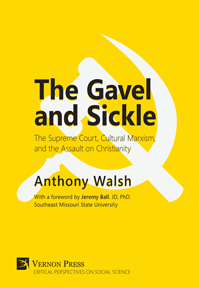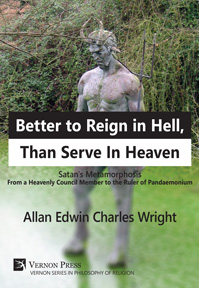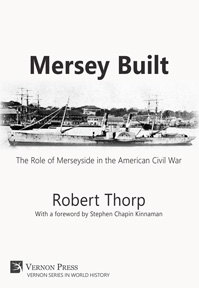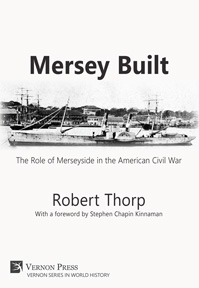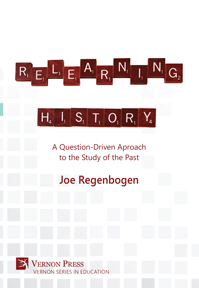Search
Browse
by Publication status
by Subject
Anthropology (26) Art (124) Business and Finance (26) Cognitive Science and Psychology (54) Communication and Journalism (45) Economics (62) Education (66) History (149) Human Geography (22) Interdisciplinary (42) Language and Linguistics (129) Law (16) Music Studies (18) Philosophy (157) Political Science and International Relations (103) Sociology (304) Statistics and Quantitative Methods (20)by Series
Series in Literary Studies (65) Series in Philosophy (59) Series in Education (51) Series in Sociology (42) Series in Politics (32) Series in World History (32) Bridging Languages and Scholarship (31) Series in Language and Linguistics (25) Cognitive Science and Psychology (20) Series in American History (20) Series in Philosophy of Religion (20) Series in Art (19) Critical Perspectives on Social Science (16) Series in Cinema and Culture (16) Curating and Interpreting Culture (15) Series in Critical Media Studies (14) Series on the History of Art (14) Series in Anthropology (13) Series in Business and Finance (13) Economics (13) Series in Music (12) Series in Communication (9) Series in Performing Arts (9) Philosophy of Personalism (8) Series in Law (8) Series in Economic Methodology (7) Series on Climate Change and Society (7) Women's Studies (7) Classics in Economics (6) Series in Economic Development (6) Philosophy of Forgiveness (5) Series in Built Environment (5) Series in Economic History (5) Series in Philosophy of Science (4) Series in Social Equality and Justice (4) Series on the History of Science (4) Serie En Estudios Literarios (3) Serie en Sociología (3) Series in Contemporary History (3) Series in Creative Writing Studies (3) Series in Design (3) The Interdisciplinary Built Environment (3) Serie en Comunicación y Medios (2) Serie en Historia (2) Series in Heritage Studies (2) Series in Innovation Studies (2) Series in Philosophy of Race (2) Serie en Ciencias Políticas (1) Serie en Entorno Construido (1) Serie en Estudios Culturales (1) Serie en Filosofía (1) Serie en Filosofía de la Ciencia (1) Serie en Música (1) Series in Classical Studies (1) Series in Economics of Technological Change (1) Series in Urban Studies (1)by Language
English Spanishby Author
Browsing with filters

The Gavel and Sickle: The Supreme Court, Cultural Marxism, and the Assault on Christianity
Anthony Walsh, Boise State University
Availability: In stock
258pp. ¦ $61 £50 €58
This book addresses the benefits of Christianity for all, the degradation of our culture since the 1950s, the pernicious effects that cultural Marxism has had on Western cultures, and the loss of religious freedom as the Founders envisioned it due to a number of Supreme Court rulings. We cannot understand the culture war and cultural debasement until we understand cultural Marxism. Cultural Marxism has been "hiding in plain sight" since the 1930s with the immigration to the United States of a cadre of intellectuals from Germany who brought with them the folderol of critical theory, political correctness, gender neutrality, radical feminism, and moral relativism. This intellectual moonshine is designed to weaken family structure and individual morality, and it has worked. The ultimate purpose of cultural Marxism is to destroy Western civilization from within. This goal is clearly and unambiguously stated in their books and articles. In numerous places in these books and articles, cultural Marxists are adamant that if socialism is ever to come to America the two epicenters of Western morality, the family and Christianity, will have to be destroyed by slow, stealthy, and incremental attacks on them. They have been aided in their efforts by anti-Christian rulings by the United States Supreme Court since the 1940s. I do not claim in any sense that the Supreme Court is engaged in a conspiracy with cultural Marxists. Their rulings have been based on a reading of the Establishment Clause of the First Amendment that its authors would not recognize, and have used this clause to eviscerate the Free Exercise Clause—America’s “first freedom.” The Court has purged Christianity from the public square, and in doing so it has unwittingly helped the cultural Marxist agenda by spiritually disarming America.
Better to Reign in Hell, Than Serve In Heaven
Satan's Metamorphosis From a Heavenly Council Member to the Ruler of Pandaemonium
Allan Wright, University of Alberta
Availability: In stock
169pp. ¦ $57 £47 €54
In this monograph, I argue that Satan was not perceived as a universal malevolent deity, the embodiment of evil, or the “ruler of Pandemonium” within first century Christian literature or even within second and third century Christian discourses as some scholars have insisted. Instead, for early “Christian” authors, Satan represented a pejorative term used to describe terrestrial, tangible, and concrete social realities, perceived of as adversaries. To reach this conclusion, I explore the narrative character of Satan selectively within the Hebrew Bible, intertestamental literature, Mark, Matthew, Luke, Q, the Book of Revelation, the Nag Hammadi texts, and the Ante-Nicene fathers. I argue that certain scholars’ such as Jeffrey Burton Russell, Miguel A. De La Torre, Albert Hernandez, Peter Stanford, Paul Carus, and Gerd Theissen, homogenized reconstructions of the “New Testament Satan” as the universalized incarnation of evil and that God’s absolute cosmic enemy is absent from early Christian orthodox literature, such as Mark, Matthew, Luke, Q, the Book of Revelation, and certain writings from the Ante-Nicene Fathers. Using Jonathan Z. Smith’s essay Here, There, and Anywhere, I suggest that the cosmic dualist approach to Satan as God’s absolute cosmic enemy resulted from the changing social topography of the early fourth century where Christian “insider” and “outsider” adversaries were diminishing. With these threats fading, early Christians universalized a perceived chaotic cosmic enemy, namely Satan, being influenced by the Gnostic demiurge, who disrupts God’s terrestrial and cosmic order. Therefore, Satan transitioned from a “here,” “insider,” and “there,” “outsider,” threat to a universal “anywhere” threat. This study could be employed as a characterization study, New Testament theory and application for classroom references or research purposes.
Mersey Built: The Role of Merseyside in the American Civil War
June 2017 / ISBN: 978-1-62273-281-4Availability: In stock
448pp. ¦ $70 £57 €66
‘Mersey Built’ chronicles the little-known commercial battle that raged between North and South during the American Civil War. The South relied on Europe for its military supplies, which the North tried to stop with a naval blockade of all Southern ports. The South retaliated by destroying Northern merchant ships on the high seas, using war ships, secretly procured from British shipyards and smuggled out of Britain by sympathetic British captains using British crews. The Charleston-based business empire headed by George Trenholm provided a conduit for Confederate finance with its Liverpool branch acting as bankers for the Confederacy’s procurement agents. Merseyside, with its extensive docks and numerous shipyards quickly became the epicenter of Confederate operations in Europe. Several British businessmen bought ships specifically to run supplies through the Union blockade, leaving relationships between the United States and Britain strained, close to breaking point. The book relates the history of Trenholm’s commercial empire, its pre-war expansion into Liverpool and the pivotal role it played in supporting the Confederate war effort. The involvement of other Liverpool-based entrepreneurs and their successes and failures in blockade-running is described. Background histories of the Merseyside ship builders who constructed warships and blockade runners for the Confederacy are included as well as several mini-biographies of the Liverpool-based captains who smuggled out warships and braved the Union blockade. Details of each ship built on Merseyside for involvement in the Civil War are listed. The role of the United States consular service and its extensive, Liverpool-based, spy ring is described, as are the efforts of the United States ambassador in London to influence British government policy on neutrality. The author, a direct descendant of a Liverpool ship builder, and a blockade-running captain, brings new insights and previously unpublished facts to light in this fascinating chapter of history.
Mersey Built: The Role of Merseyside in the American Civil War
July 2017 / ISBN: 978-1-62273-280-7Availability: In stock
448pp. [Color] ¦ $105 £86 €99
‘Mersey Built’ chronicles the little-known commercial battle that raged between North and South during the American Civil War. The South relied on Europe for its military supplies, which the North tried to stop with a naval blockade of all Southern ports. The South retaliated by destroying Northern merchant ships on the high seas, using war ships, secretly procured from British shipyards and smuggled out of Britain by sympathetic British captains using British crews. The Charleston-based business empire headed by George Trenholm provided a conduit for Confederate finance with its Liverpool branch acting as bankers for the Confederacy’s procurement agents. Merseyside, with its extensive docks and numerous shipyards quickly became the epicenter of Confederate operations in Europe. Several British businessmen bought ships specifically to run supplies through the Union blockade, leaving relationships between the United States and Britain strained, close to breaking point. The book relates the history of Trenholm’s commercial empire, its pre-war expansion into Liverpool and the pivotal role it played in supporting the Confederate war effort. The involvement of other Liverpool-based entrepreneurs and their successes and failures in blockade-running is described. Background histories of the Merseyside ship builders who constructed warships and blockade runners for the Confederacy are included as well as several mini-biographies of the Liverpool-based captains who smuggled out warships and braved the Union blockade. Details of each ship built on Merseyside for involvement in the Civil War are listed. The role of the United States consular service and its extensive, Liverpool-based, spy ring is described, as are the efforts of the United States ambassador in London to influence British government policy on neutrality. The author, a direct descendant of a Liverpool ship builder, and a blockade-running captain, brings new insights and previously unpublished facts to light in this fascinating chapter of history.
Relearning History
A Question-Driven Approach to the Study of the Past
August 2017 / ISBN: 978-1-62273-253-1Availability: In stock
239pp. ¦ $49 £40 €46
For many students, the traditional approach to the study of history does not work. The litany of facts arranged in a chronological sequence often turns out to be mind numbing and forgettable. In addition, they see little relevance between the past and the world they live in today. Relearning History was written for those students. Instead of reviewing the traditional time line of the past, the focus is directed at questions relevant to the present. Why does the two-party system dominate American politics? Why is wealth so unevenly distributed? Why does race and gender still play such a large role in modern society? Why has there never been a World War Three? These “why” questions, along with 11 others, serve as the foundation for a discussion of history so that the study of the past is inexorably linked to a enhanced understanding of the present. Students who are currently enrolled in history classes can use Relearning History to supplement and enrich the traditional curriculum. Some may even want to use it in place of the traditional curriculum. As for those adults who have completed their formal education and never learned much in their earlier history classes, this book will give them the chance to finally study history in a meaningful manner.

